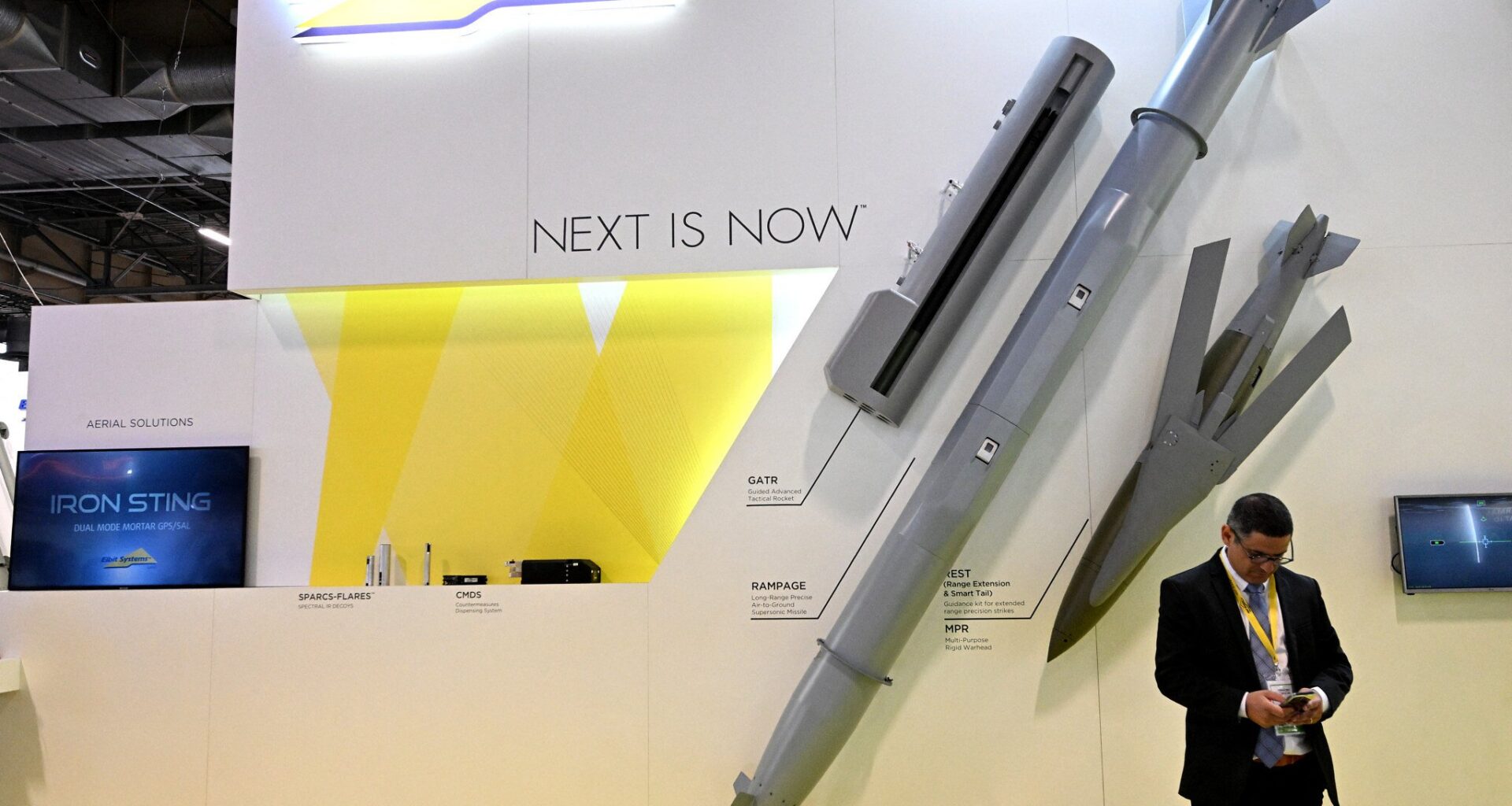On October 10, 2023, the Spanish government okayed an agreement to purchase 12 multiple rocket launcher systems based on the Israeli defense firm Elbit Systems’ PULS platform, as part of a deal worth €700 million ($825 million).
The systems, which would be built by a Spanish consortium and known locally as SILAM, were meant to replace the Cold War-era Teruel rocket launcher array which had been mothballed by Madrid over a decade earlier.
In Israel, the move drew little attention. Days earlier, thousands of Hamas-led terrorists had stormed across the Gaza border, slaughtering some 1,200 people, taking over 250 more hostage. Still reeling from the unprecedented attack, the country was focused on grasping the enormity of the onslaught and the inevitable war looming over Gaza in response.
Less than two years later, that war would lead Spain to cancel the contract. Unlike the largely overlooked deal by Madrid in 2023, the first such move by a NATO member implementing a broad arms embargo on Israel is being closely watched in Jerusalem as a possible harbinger of Europe’s increased willingness to push back against Israel both diplomatically and economically.
“The focus may not yet be on the defense industries, but the pressure is mounting in the international arena,” Pnina Sharvit Baruch, a senior research associate at the Institute for National Security Studies, told The Times of Israel. “The situation is already going bad… This is one example.”
Get The Times of Israel’s Daily Edition
by email and never miss our top stories
By signing up, you agree to the terms
The canceled contract would have been worth €150 million ($176 million) to Elbit, according to Israeli business daily Globes, just a small fraction of the company’s overall business activity, which included an order backlog of $22.6 billion in 2024. Elbit declined a request for comment on the matter.

An undated handout image showing a PULS artillery rocket-launcher system. (Elbit Systems)
While not a major blow to Israel’s defense sector overall, Spain’s cancellations have mounted rapidly: a separate €285 million ($325 million) deal with Rafael Advanced Defense Systems was scrapped in June, followed by another worth $207 million last month.
The cancellations came a day after Prime Minister Pedro Sanchez declared an arms embargo and partial import ban, accusing Israel of “genocide in Gaza.” The sanctions also bar Israeli-bound weapons shipments from Spanish ports and airspace, block imports from West Bank settlements, and restrict entry to Spain for individuals accused of involvement in the war.
Spain has been among Europe’s most vocal critics of Israel, but as the war drags on, there are concerns that its moves presage a coming breakup with the continent writ large, shriveling economic ties with Israel’s largest trading partner and blocking off a key conduit for arms supplies.
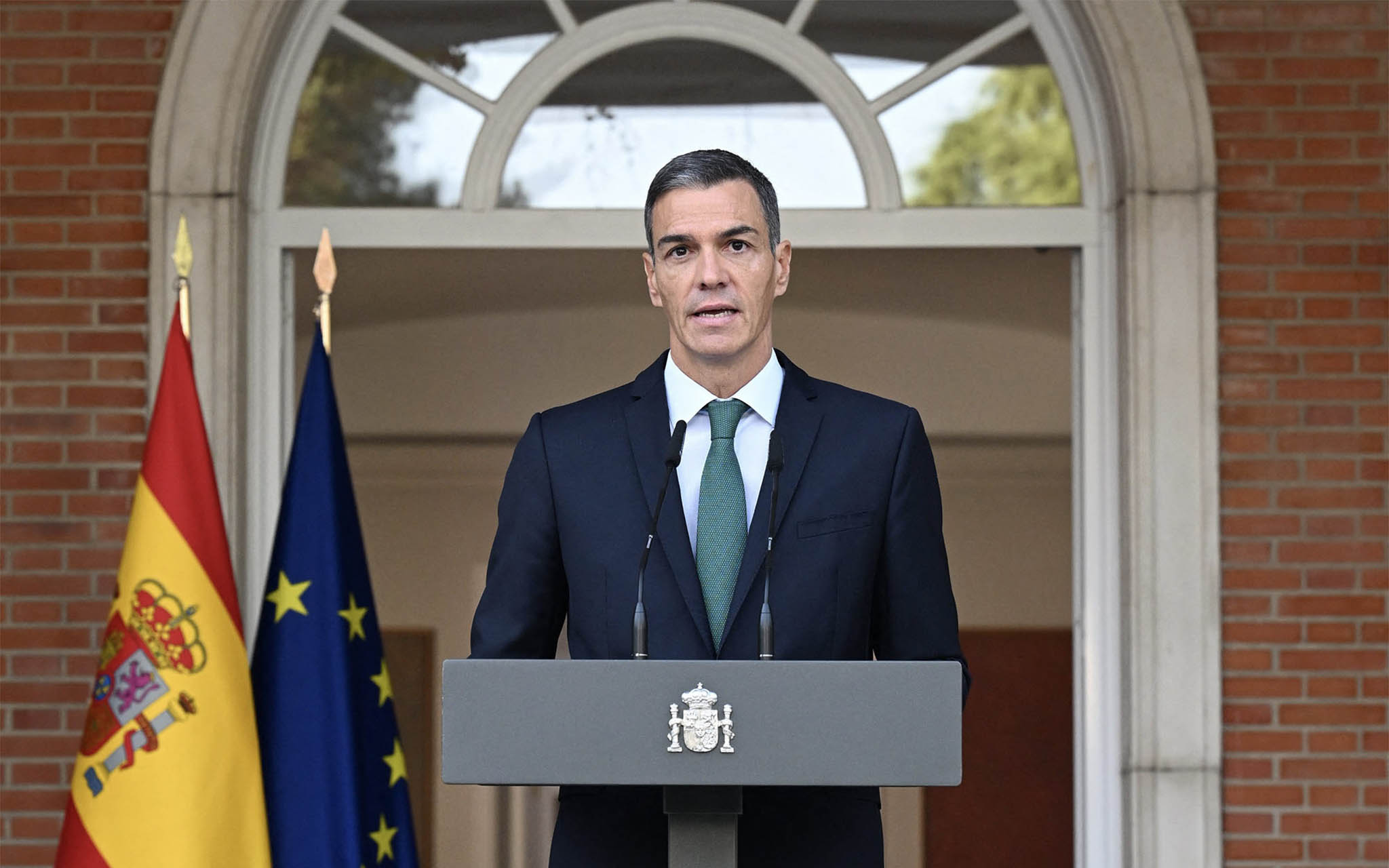
Spanish Prime Minister Pedro Sanchez announcing several measures, including an arms embargo on Israel, September 8, 2025. (Borja Puig de la Bellacasa / La Moncloa / AFP)
“We do have to acknowledge that having ties with Israel today is becoming something with a [higher] cost,” whether for leaders who oppose Israel’s actions in Gaza on moral grounds or because of mounting domestic political pressure, said Sharvit Baruch.
Spain’s stance highlights a growing rift inside Europe, where governments face mounting public pressure to punish Israel diplomatically while balancing urgent security needs. Last month, the European Commission proposed sanctions on far-right Israeli ministers and a partial suspension of Israel’s association agreement with the EU, moves Israel denounced as “morally and politically distorted.”
However, experts say there are reasons to see Spain as more of an outlier than the leading edge of a gathering European winter, with Madrid’s moves seemingly driven in part by internal political machinations and the Continent keen to redouble its defense posture in response to Russian threats.
“I would presume that the last thing they would like to do is sanction weapons purchases,” Sharvit Baruch said of NATO members in Europe. “They will do other things first.”
Domestic challenge
Aside from Madrid taking the lead in opposing Jerusalem, Spain has also emerged as a focal point for high-profile anti-Israel protests. Most recently, on September 14, the final stage of the Vuelta a España cycling race was shut down after thousands of anti-Israel protesters clashed with police and blocked the route in Madrid — the latest in a string of disruptions to the Grand Tour.
Just two days later, Spanish state broadcaster RTVE’s board voted to withdraw from the 2026 Eurovision Song Contest if Israel is allowed to participate.

Pro-Palestinian, anti-Israel protestors invade the street during the 21st and last stage of the Vuelta a Espana 2025 in Madrid on September 14, 2025. (Pierre-Philippe Marcou / AFP)
Analysts have argued that Spain’s move to become the first NATO member to impose an arms embargo on Israel is rooted as much in domestic politics as foreign policy.
Sanchez is under growing domestic pressure, and his minority coalition is increasingly reliant on far-left factions, leading him to tap into growing anti-Israel sentiment on the street. That political calculus, analysts say, has pushed Madrid into adopting a harder line against Israel than many of its other Western allies.
“Whether due to Spanish Prime Minister Pedro Sanchez believing Hamas propaganda or the cynical politics of distraction, the Spanish prime minister is doing long-term damage to his relations with Israel,” said David May, a senior research analyst at the Washington-based Foundation for Defense of Democracies.
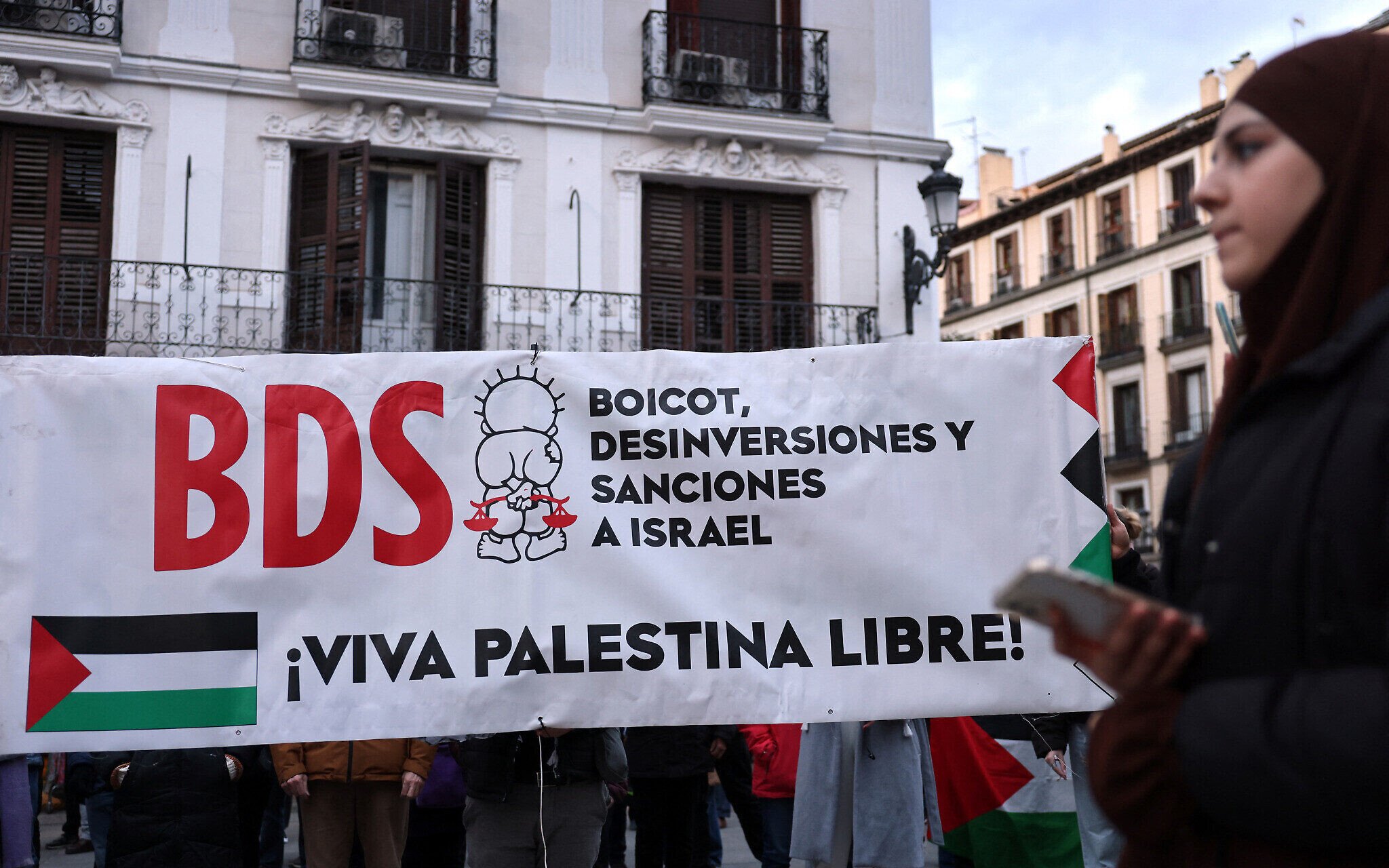
Illustrative: Protesters hold a banner reading ‘BDS’ (Boycott, Disinvestment, Sanctions) during an anti-Israel rally in support of Palestinians in the Gaza Strip, in Madrid, Spain, March 1, 2024. (Thomas Coex / AFP)
In polls, Sanchez’s party has fallen sharply from over 29 percent support in May to 27% in September — its weakest showing in nearly two years, according to Politico. Meanwhile, the conservative opposition People’s Party has consolidated its lead at 34% and the far-right Vox has risen steadily to 16 percent.
“As his party slips in the polls, Sanchez seems to be using the well-worn method of shifting attention away from his failures and onto the Jewish state,” May said.
NATO needs arms
Spain’s embargo and the European Union’s threats land at a time when Europe has become Israel’s fastest-growing arms market.
According to data from the Stockholm International Peace Research Institute, Israel ranked as Europe’s fifth-largest arms supplier from 2020 to 2024 — the only non-NATO country in the top five apart from South Korea.
Under heavy pressure from US President Donald Trump, NATO members recently agreed to a sweeping new defense spending target of 5% of GDP by 2035, up from the long-standing 2% benchmark. The plan is expected to channel hundreds of billions of euros into weapons procurement and security investments over the next decade.

A black wall blocks an Elbit display at the Paris air show in France on June 16, 2025. (Defense Ministry)
The buildup comes as Russia’s war in Ukraine is reshaping European security, scrambling governments to scale up procurement quickly. Israel has become a key supplier in that race: its defense exports hit a record $14.8 billion in 2024, according to Defense Ministry figures released in June, with more than half of sales going to Europe.
But Israelis may face more of an uphill battle to win those contracts than in the past, with many unable to even display their wares at defense expos.
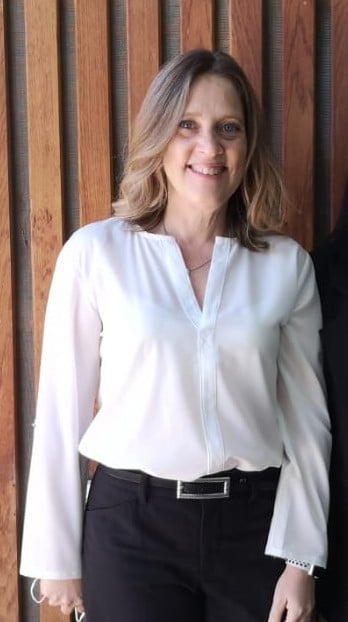
Col. (res.) Pnina Sharvit Baruch of the Institute for National Security Studies at Tel Aviv University. (Courtesy)
In recent months, Israeli defense companies have been barred from major arms fairs in the Netherlands and France. In another worrying sign for defense ties, the UK has announced it will prohibit Israeli officers from enrolling in its prestigious defense academy starting next year.
Nonetheless, Sharvit Baruch believes countries looking to punish Israel are more likely to target sectors where Israel’s role is less critical — such as culture or the economy.
“I don’t think the Spanish model is the main threat to Israel,” she said.
“Everything today is a black and white analysis… that’s not the situation,” she said. “Everything in general is very complex. There is no black and white.”
However, she cautioned that unless things changed regarding how Israel is fighting or dealing with Gaza, the country’s defense sector and its broader diplomatic standing could be vulnerable too.
“If Israel continues with its existing policy, I think we will go from bad to worse,” she said.
Avoiding Sparta
In a now-infamous speech on September 16, Prime Minister Benjamin Netanyahu admitted that Israel is facing growing isolation on the world stage, warning that the country will need to become a more self-reliant “super-Sparta” in the years ahead.
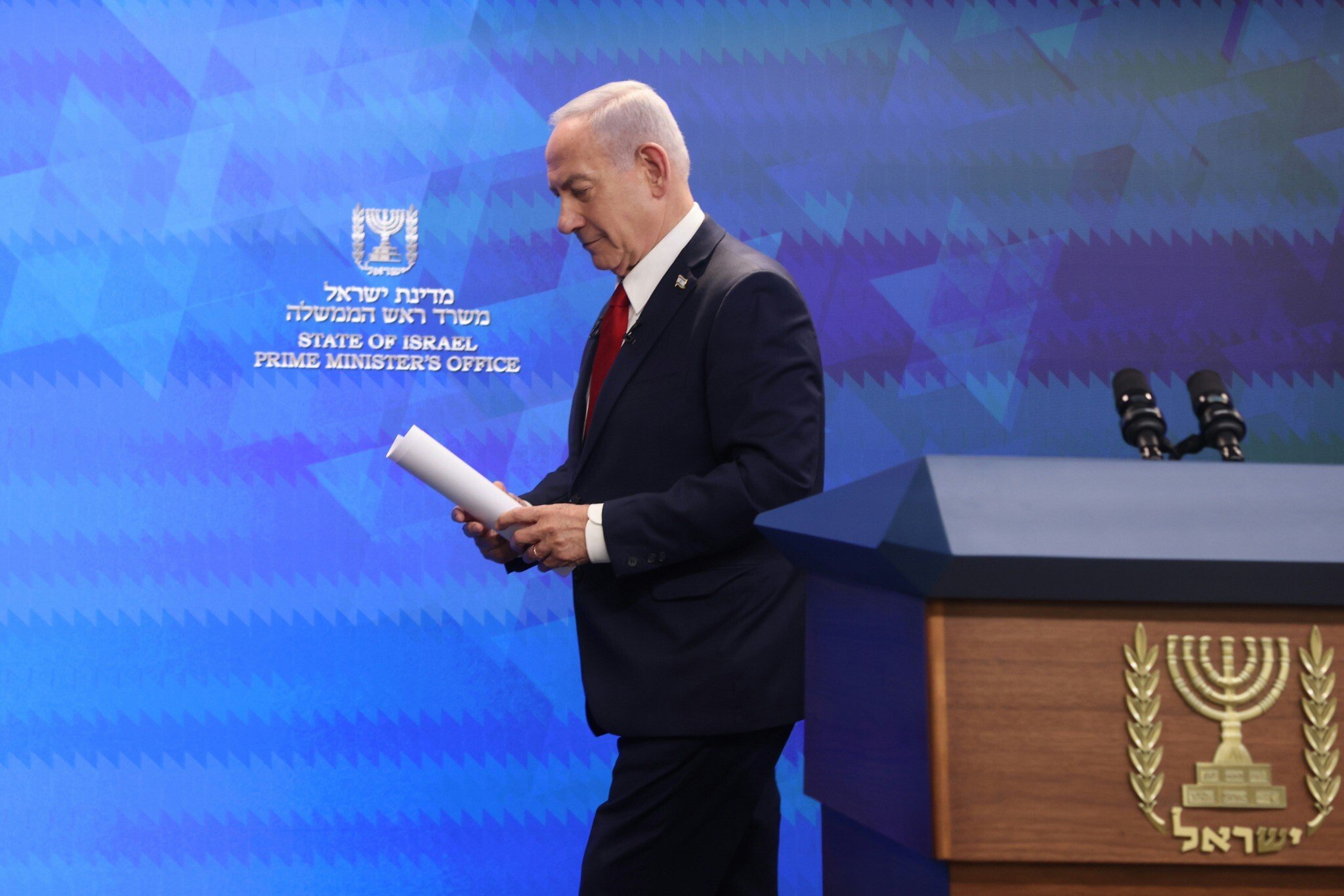
Prime Minister Benjamin Netanyahu holds a press conference at the Prime Minister’s office in Jerusalem, September 16, 2025. (Marc Israel Sellem/Pool)
“There’s no choice; in the coming years, at least, we will have to deal with these attempts to isolate us,” he said at a conference of the Finance Ministry’s accountant general in Jerusalem.
Sharvit Baruch criticized the attempts to pressure Israel via boycotts and embargoes, but with Europe and the rest of the world unlikely to slacken pressure, noted that Israel would have to change if it wanted to avoid Netanyahu’s vision of the future.
“The international arena is trying to pressure Israel to change its behavior… They’re using different tools, but [all] these tools have the problem of strengthening Hamas and strengthening the extremists inside Israel,” she said.
Hardline figures within Israel interpret international sanctions and recognition of Palestine as validation that “the world is already against us.”
“It will be very difficult to reverse [the damage],” she acknowledged. “But I also think it can be reversed.”
Times of Israel staff contributed to this report.

